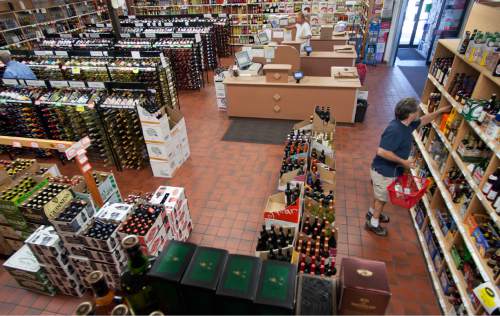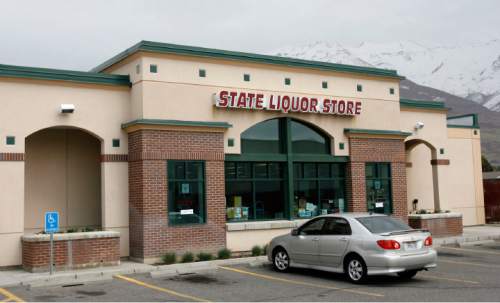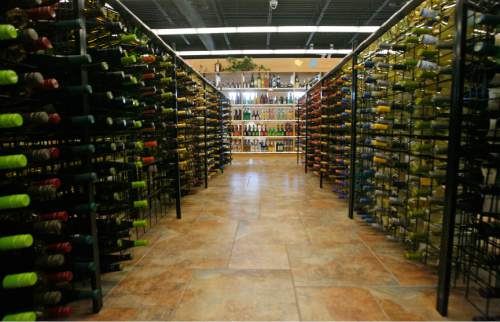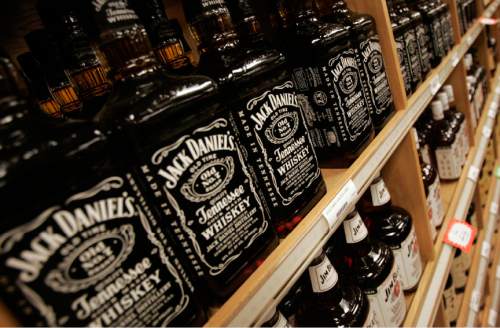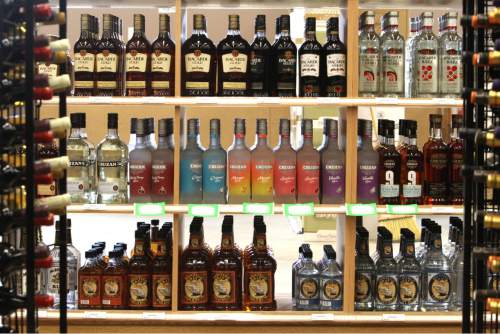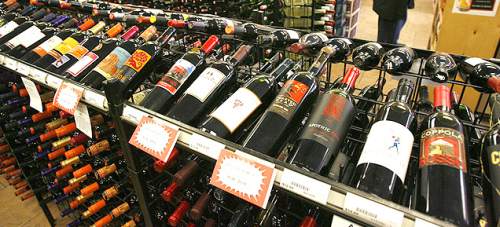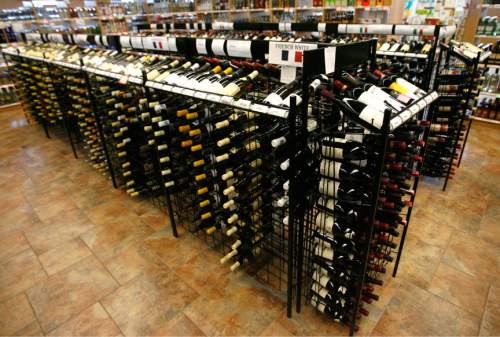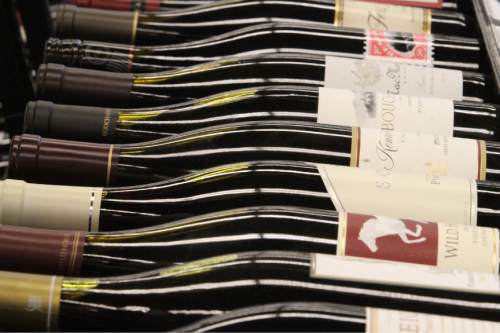This is an archived article that was published on sltrib.com in 2014, and information in the article may be outdated. It is provided only for personal research purposes and may not be reprinted.
Should Utah abandon its longtime monopoly on liquor sales and turn the business over to the private sector?
Utah voters are divided on the issue, according to a new poll released Tuesday by UtahPolicy.com.
In the poll, 36 percent of respondents say the state should turn liquor sales to the private sector while 31 percent want to keep the current system in place.
Another 27 percent favor a hybrid system where the state retains control of hard liquor sales while allowing private retail outlets to sell wine and high-point beer. Seven percent had no opinion on the privatization issue.
Under state law, grocery and convenience stores can sell beer that is 4 percent alcohol by volume — often referred to as 3.2 beer — but all higher-alcohol beer, wine and spirits are sold at state-owned liquor and wine stores.
The state's long-standing monopoly hasn't seemed to hurt sales. During the 2013-2014 fiscal year, total retail sales were $367.2 million, an increase of nearly 6 percent or more than $20 million from the previous 12 months, according to numbers from the Utah Department of Alcoholic Beverage Control (DABC).
The year-end data also showed that the DABC collected more than $57 million in taxes — $18.7 million in sales tax and another $38.3 million to help fund the state's school lunch and public safety programs.
Marie Taylor, a Salt Lake City planning commissioner who regularly deals with out-of-state groups, would like to see some form of privatization.
"A change needs to happen," she said. "Right now it [the liquor system] is too political. A lot of people have an idea that it's run by people who have a negative opinion about drinking — namely the Mormon church. Moving it into the private sector means there's not so much emotion involved."
A hybrid system would be a good first step, she said.
"I definitely think having the ability to buy a good wine in a market, and not have to make an extra trip to the liquor store, is a good idea," she said. "What happens here should be more like it is in other states. It would encourage people to come here for conventions and travel and would not make things such a huge hassle."
Bryan Schott, managing editor at UtahPolicy.com, said the privatization question was one of several alcohol-policy questions that were asked of 402 registered Utah voters in the poll, conducted Nov. 4-6 by Dan Jones and Associates. Another question dealt with the 7-foot walls — dubbed Zion Curtains — that are required at new Utah restaurants serving alcohol. On that question, 62 percent of those polled said the walls should come down.
Zions Bank helped fund the poll, which has a margin of error of 4.89 percent.
He said opinions on liquor privatization fell along political and religious lines.
"Utah Democrats are much more free-market minded when it comes to liquor than those of other political persuasions," he wrote, noting that 64 percent of Democrats want to turn liquor sales over to the private sector. Just 26 percent of Republicans and 38 percent of independent voters felt that way.
On the other hand, 40 percent of GOP voters want the state to keep complete control of booze while 27 percent of independent voters and 6 percent of Democrats agree.
When religious affiliations are considered, 46 percent of very active Mormons — who abstain from alcohol — want Utah to continue controlling all liquor sales.
Conversely, 56 percent of somewhat active LDS Church members and 54 percent of inactive LDS Church goers want to turn all liquor sales over to the private market.
If privatization legislation was introduced — as it has been in the past — it would likely face opposition from the Mormon church as well as health officials.
In September, Bob Brewer with the U.S. Center for Disease Control, encouraged lawmakers and others attending the Utah Legislative Alcohol Policy Summit to "avoid privatization."
"Alcohol is costly and killing people and as a society we can't afford it," he said, noting that states with higher taxes and fewer outlets — including Utah — have lower rates of underage drinking, drunk driving and over-consumption.
"Fewer places to get booze," he said, "reduces use."


